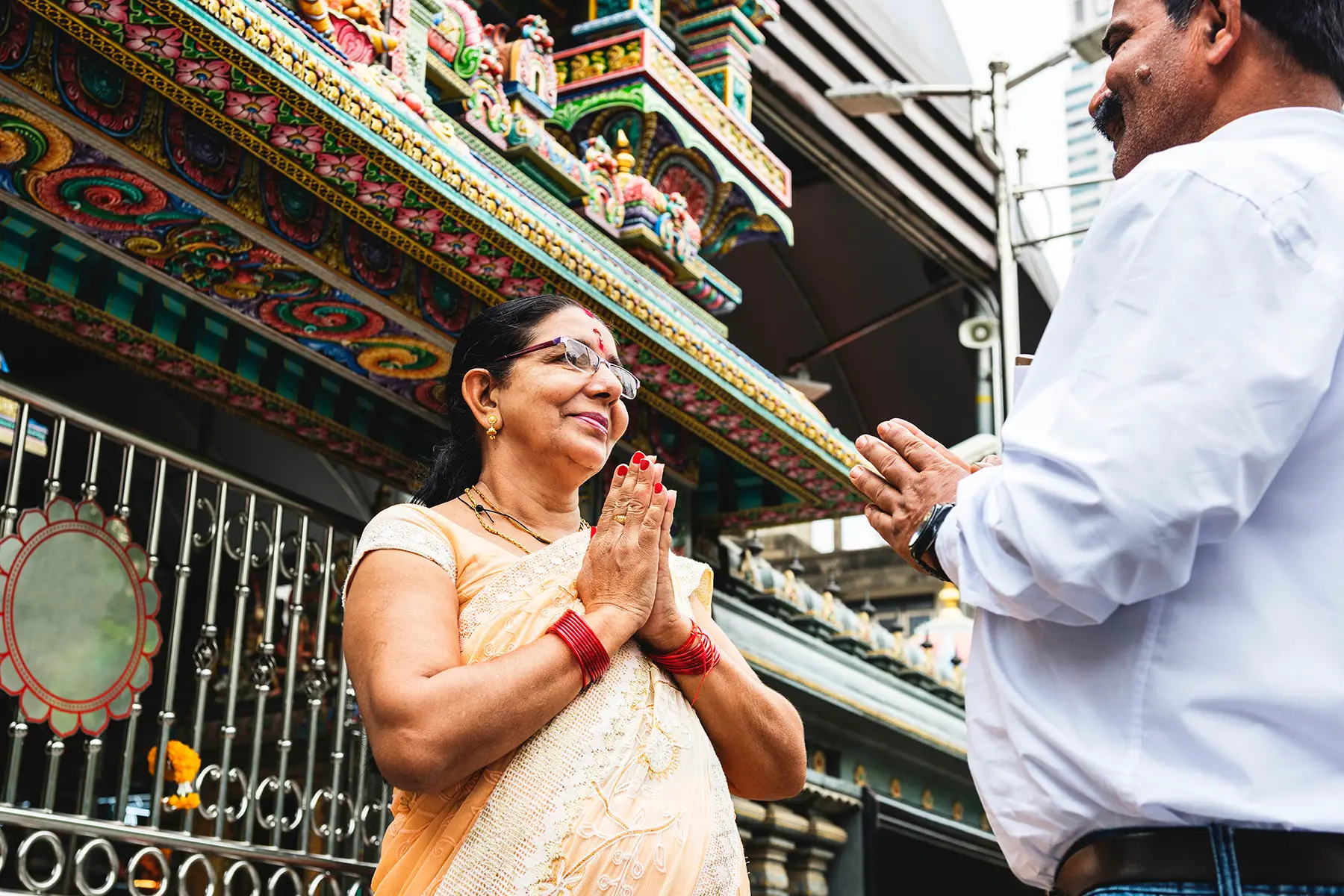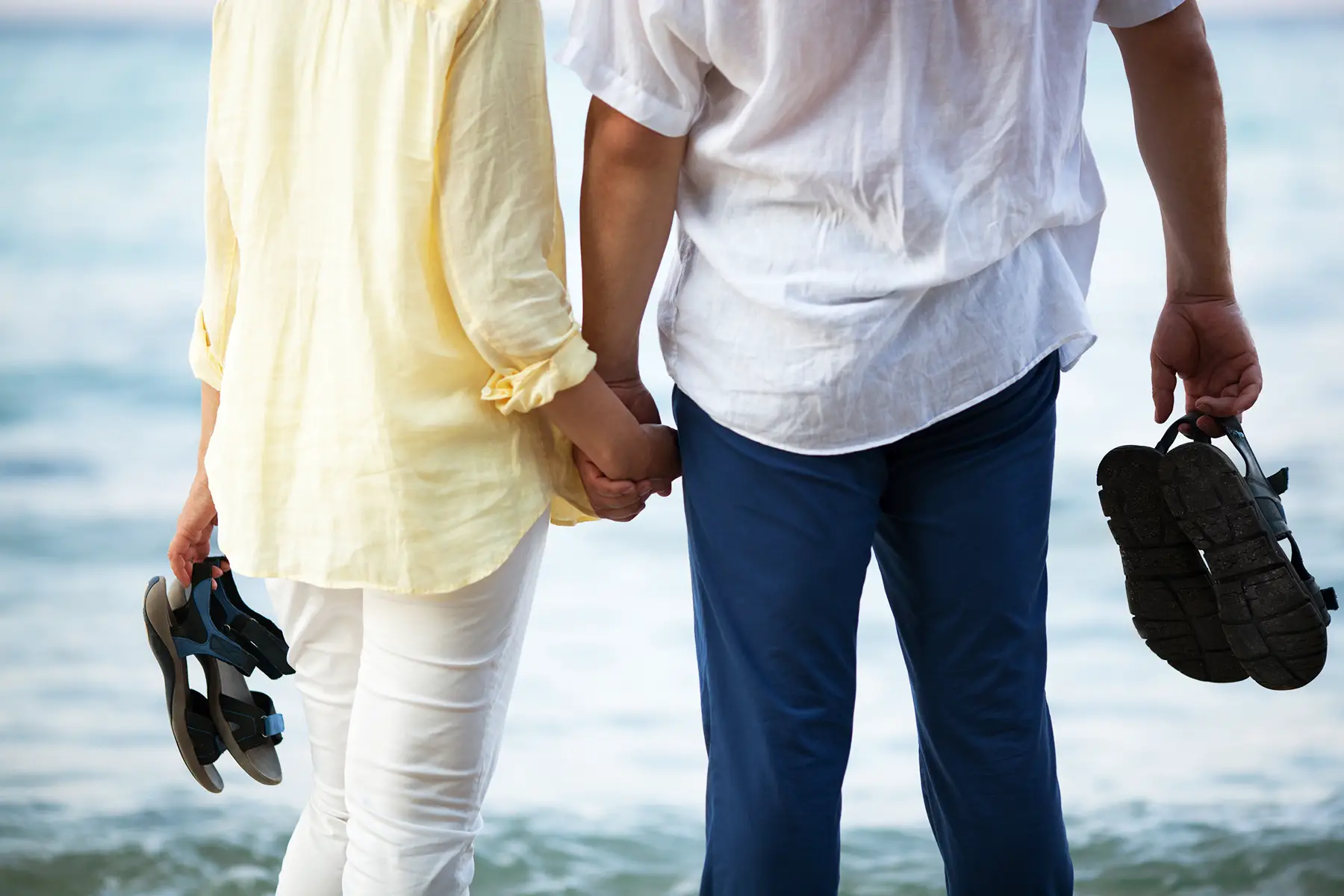To kiss or not to kiss – that is the question. If you have ever faced this dilemma when moving to a new country and meeting new people, then you are not alone. After all, every culture in the world has its own greeting customs. Depending on the occasion and where you are, this can take the form of a hug, handshake, bow, nose rub, kiss on the cheek – or even the lips.
Learning how to greet people is often one of the first lessons that expats stumble upon when adapting to a new culture. So, to save you the confusion – and possibly the embarrassment of any social faux pas – we explain the different ways that people greet each other around the world.
A peck (or two) on the cheek
Kissing on the cheek is common greeting etiquette in many cultures, particularly in Europe and Latin America. However, each country has its own unique way of doing it. People in Mexico and Colombia, for example, believe that one kiss is sufficient. In Italy, Hungary, and Brazil, on the other hand, a kiss on each cheek is preferable. And if you happen to find yourself in Ecuador, you might notice that women are greeted with a single kiss; and only on their right cheek.

Speaking of the ladies, when greeting a woman in Poland, Austria, Romania, Hungary, and Slovakia, a man should typically kiss her on the hand. This is not only seen as expressing affection, but also a sign of respect – and they say romance is dead!
Three is the magic number
In many European countries, people typically greet each other by kissing on the cheek three times, alternately, starting with the right. Indeed, if you find yourself in the Netherlands, Switzerland, Slovenia, Montenegro, or North Macedonia, then this is the way to go.

Meanwhile, France has its own interesting take when it comes to kissing. Of course, we all know that the country is famous for its passionate and romantic French kiss. But when meeting and greeting each other, the number of smooches people give depends on where they live. In Provence, for instance, the locals like to exchange three pecks on the cheek. But venture up to Nantes and you will find that they go one step further and give four. Such grand signs of affection mean that it can often take a long time to leave a party; especially if there is a considerable guest list!
The air kiss
In some cultures, kissing on the lips is a romantic gesture, but in others, this isn’t always the case. In South Africa and Australia, for instance, kissing quickly on the lips with a closed mouth is a common greeting custom among friends, especially in rural areas. The air kiss is another common way to greet one another in the land Down Under. Of course, this doesn’t involve making actual contact but rather a kissing gesture in the air while brushing cheeks, or in a near miss.

People in Belgium, including men, are also partial to giving each other an air kiss. This is also customary in some parts of Italy (except for the north) among people who know each other very well. In Spain, the locals give two air kisses, starting with the right cheek. Men, however, prefer to shake hands.
The “Eskimo kiss”
Now, here’s a cute one. The “Eskimo kiss”, as it was affectionately dubbed by early explorers of the Arctic, refers to the Inuit tradition of greeting someone by pressing your nose against their nose, cheek, or forehead. The reason for this intimate greeting is due to the fact that the Inuits – the indigenous people in the Northern Arctic – often have only their noses and eyes exposed when meeting each other outside.

This greeting custom is also widely practiced among the Mongolian nomads of the Gobi Desert and the Maori tribe of New Zealand. It is also common in certain Southeast Asian cultures, including the Cambodians, Thai, Vietnamese, Bengalis, Laotians, Timor, Sabu, and Ibans.
Interestingly, Arab tribesmen also employ nose kissing as a traditional greeting among members of the same tribe. And in Oman, it is not unusual for men to kiss one another on the nose after shaking hands. In Arab countries, it is actually customary for men to give a hug, followed by a kiss on the cheek or forehead. In these cultures, however, people avoid kissing the opposite sex, unless they are close friends or relatives.
Alternatives to kissing
As lovely as it is, kissing is not customary in every culture in the world. This is particularly true of Asian countries such as India and China, where people see it as a sexual expression. In fact, in India, people frown upon kissing each other in public. Instead, they greet each other with namaste. This is a Hindu greeting custom whereby they place their two palms together in front of their chest and bow their head while saying the word ‘namaste’.

The locals greet everyone in this way, including those who are younger and older than themselves, as well as friends and even strangers. In Sanskrit, the word has two parts – namah (to bow) and te (you); it therefore translates to ‘I bow to you’. The word namaha can also be literally interpreted as na ma (not mine). This carries the spiritual significance of negating or reducing one’s ego in the presence of another.
Similarly, in Japan, men and women greet each other by bowing rather than shaking hands or hugging. Meanwhile, in Germany, people tend to avoid kissing altogether. Instead, they prefer to shake hands if they don’t know each other, or hug if they are friends.
The no-kiss rule
In some areas of the world, particularly the Middle East, it is illegal for men and women to kiss in public. As a result, they can face severe penalties for doing so. In Dubai, for instance, expats have been prosecuted for showing public displays of affection. One of the most widely reported cases involved two Britons, Charlotte Adams, and Ayman Najafi. They were jailed for a month after an Emirati woman complained that they kissed in public.

Similarly, in Qatar, public displays of affection with the opposite sex can land you in hot water. Here, kissing and hugging in public, even if you are a married couple, can still cause offense. A peck on the cheek or holding hands, however, is seen as acceptable. The laws in Egypt are also strict. In fact, the police can fine or imprison you if they see you kissing on the street or receive complaints. Notably, only people of the same sex are allowed to greet each other with a kiss. In this case, they typically give three kisses on the cheek.
Although it is not illegal, people in some areas of Vietnam consider public displays of affection to be taboo. This is particularly true outside of the main cities of Hanoi and Saigon. Similarly, people in Indonesia and Thailand generally frown upon this. Their conservative beliefs mean that kissing in public is a major no-no. Holding hands, however, is becoming more acceptable in cosmopolitan areas such as Bangkok.
Extreme laws in the United States
Some states in America have some rather intriguing laws when it comes to kissing. For instance, in Hartford, Connecticut, it is illegal for a husband to kiss his wife on Sunday. It is also illegal in Iowa for a man with a mustache to kiss a woman in public. Generally speaking, men in the US shake hands while women greet each other with a kiss on one or both cheeks. They might also hug if they know each other well.

Given the many different greeting customs and laws around the world, it always pays to do your research before you visit or move to a new country. This way you can ensure that you respect the local culture and keep yourself out of mischief.
But if you happen to find yourself in Scotland during New Year’s Eve, then feel free to let your hair down. For in this merry land of kilts and bagpipes, it is customary to smooch everyone in the room when the clock strikes midnight. You’ve been warned!




